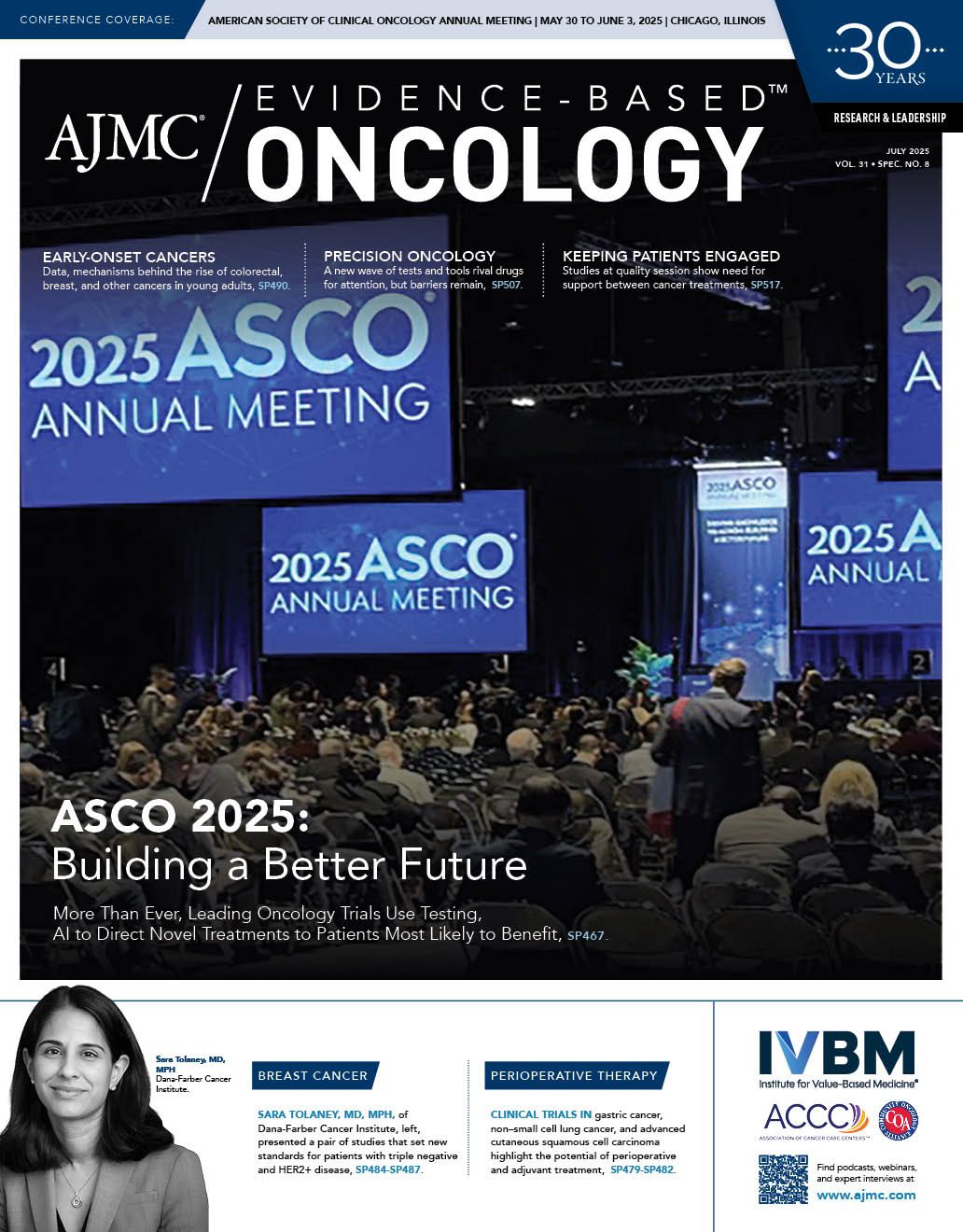- Center on Health Equity & Access
- Clinical
- Health Care Cost
- Health Care Delivery
- Insurance
- Policy
- Technology
- Value-Based Care
ASCO, Google Cloud Launch AI-Powered Tool to Help Doctors Access Guidelines
ASCO and Google Cloud unveil an AI tool that streamlines access to clinical guidelines, enhancing decision-making for oncologists in patient care.
The American Society of Clinical Oncology (ASCO) and Google Cloud have launched an artificial intelligence (AI) tool that aims to help doctors access the group’s evidence-based guidelines in a fraction of the time it takes now.
Known as ASCO Guidelines Assistant, the tool uses Google Cloud’s Vertex AI platform and Gemini models to help clinicians quickly pinpoint needed information from ASCO’s full library of evidence-based clinical guidelines.
A joint statement provided to The American Journal of Managed Care states, “Clinicians can expect a more dynamic user experience, allowing them to ask follow-up questions for intuitive, easy integration of expert information into their patient care plans.”1
The statement cites the time pressures on oncologists as the field faces both a shortage of physicians and growing number of older Americans—factors that combine to give doctors less time to hunt through guidelines at the point of care. Community oncology practices in particular are handling larger patient volumes while handling a range of cancer types on any given day.
“The ASCO Guidelines Assistant addresses this urgent need in oncology by providing clinicians with a solution that removes the accuracy concerns often associated with publicly available AI tools,” the statement said. “By drawing solely from ASCO’s evidence-based, published clinical practice guidelines, the tool offers clinicians ready access to timely, trustworthy information.”1
Clifford Hudis, MD, FACP, FASCO | Image: ASCO

Thomas Kurian | Image: LinkedIn

AI is being used in cancer care in multiple ways, from helping doctors diagnose specific types of skin cancer to interpreting the status of a tumor microenvironment.2 However, as authors from the Perelman School of Medicine at the University of Pennsylvania in Philadelphia wrote in 2024, current tools have suffered from inconsistent performance once they reach real-world settings.3
“AI tools that have been integrated into clinical workflows in
oncology clinics can analyze medical records and help doctors make more informed decisions, saving time and optimizing care,” the
authors wrote in Cancer. “However, the use of AI tools is limited by
their inconsistent performance after deployment. Biases associated
with algorithm development and implementation can lead to
inaccurate predictions that burden health care systems, care teams,
and individual patients.”3
Treating patients according to evidence-based guidelines is increasingly important, as payers are more likely than ever to not approve regimens that do not fit within guidelines or clinical pathways.
“This partnership unlocks the value of ASCO’s trusted guidelines knowledge,” ASCO CEO Clifford Hudis, MD, FACP, FASCO, said in the statement. “Google Cloud’s AI expertise is the engine that will drive faster access to critical information, empowering oncology professionals to make rapid, evidence-based decisions for their patients.”1
In a presentation on May 21, 2025, Hudis clarified that the ASCO Guidelines Assistant is not a decision support tool. In a demonstration, he put in a query to trigger a response, which appears on-screen alongside a box that pulls up the relevant section of the ASCO guidelines. Rather than offering an instruction for care, Hudis noted that the tool quickly directs the physicians to the relevant guideline, allowing them to make decisions themselves.
Officials from ASCO and Google Cloud said the tool is built under principles of reliability and transparency. To ensure accuracy, any information delivered will be backed by citations and information sources. The dynamic design allows users to ask follow-up questions and offer feedback.
The tool was tested throughout the 2025 ASCO Annual Meeting in Chicago, Illinois, from May 30 to June 3, 2025, and is now limited to ASCO members.
“Generative AI is poised to be a powerful ally for the global cancer care community,” Thomas Kurian, CEO of Google Cloud, added in the statement. “Think of it as providing clinicians with an AI-powered assistant that never tires, always learns, and can sift through mountains of data in seconds. Our collaboration with ASCO is about harnessing that potential to improve outcomes for cancer patients everywhere.”1
References
1. ASCO and Google Cloud to deliver AI-powered tool that provides faster, interactive access to ASCO’s evidence-based clinical guidelines. News release. American Society of Clinical Oncology. May 21, 2025. Accessed June 8, 2025. https://www.asco.org/about-asco/press-center/news-releases/asco-google-cloud-ai-powered-tool-faster-interactive-access-asco-guidelines
2. Luchini C, Pea A, Scarpa A. Artificial intelligence in oncology: current applications and future perspectives. Br J Cancer. 2022;126(1):4-9. doi:10.1038/s41416-021-01633-1
3. Kolla L, Parikh RB. Uses and limitations of artificial intelligence for oncology. Cancer. 2024;130(12):2101-2107. doi:10.1002/cncr.35307

The Importance of Examining and Preventing Atrial Fibrillation
August 29th 2023At this year’s American Society for Preventive Cardiology Congress on CVD Prevention, Emelia J. Benjamin, MD, ScM, delivered the Honorary Fellow Award Lecture, “The Imperative to Focus on the Prevention of Atrial Fibrillation,” as the recipient of this year’s Honorary Fellow of the American Society for Preventive Cardiology award.
Listen
Promoting Equity in Public Health: Policy, Investment, and Community Engagement Solutions
June 28th 2022On this episode of Managed Care Cast, we speak with Georges C. Benjamin, MD, executive director of the American Public Health Association, on the core takeaways of his keynote session at AHIP 2022 on public health policy and other solutions to promote equitable health and well-being.
Listen
